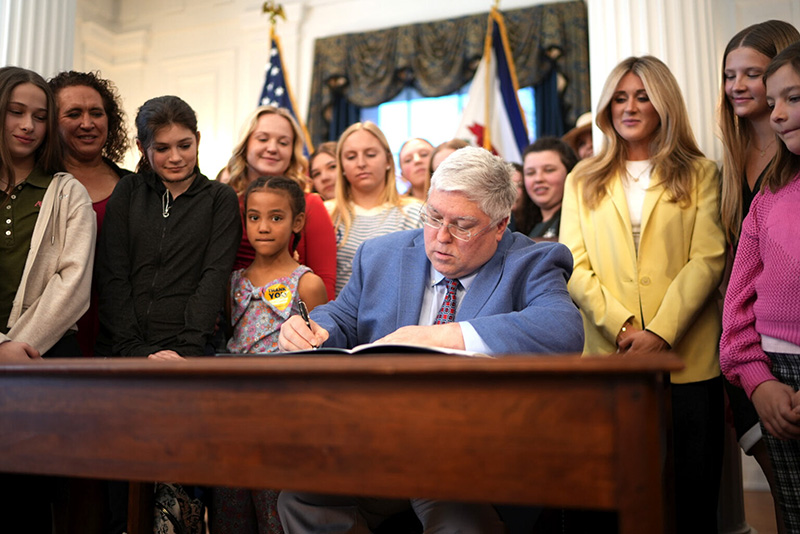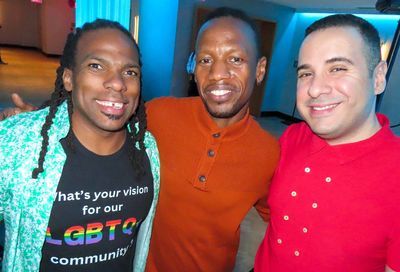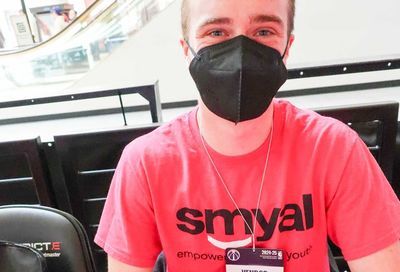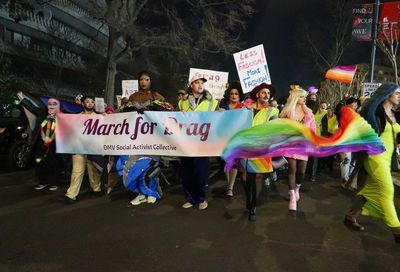Che Flores Comes Out as the NBA’s First Transgender Referee
The nonbinary and transgender referee tells GQ magazine they feel "100% percent myself" since coming out to their peers.

Che Flores, a second-year staff referee for the National Basketball Association, has come out in an interview with GQ as the league’s first nonbinary and transgender referee.
A Los Angeles native who uses the pronoun “they,” Flores worked 35 games last season, and 12 games as a non-staff official during the 2021-2022 season.
When Flores first became an NBA official, the league touted an announcement that two new women referees had been added to the mostly male referee corps — something Flores found alienating, knowing that, in private, they had begun to identify as transgender.
“One piece I was missing for myself was that no one knew how I identified,” they said. “Being misgendered as she/her always just felt like a little jab in the gut.”
But since coming out to some of their colleagues during a preseason meeting last month, Flores now feels more at ease and less constrained, even when it comes to little everyday choices like dressing in a manner that matches their gender identity.
“When I started refereeing, you had to look a certain way,” Flores told GQ. “This is the first time I’m comfortable expressing myself through my own fashion and not having to worry about it. I feel one hundred percent myself now.
“I can go through the world and even my job a lot more comfortably.”
Flores’s coming out arrives as transgender identity is under extreme attack in society, with conservatives demanding that businesses and organizations scuttle any efforts to celebrate or recognize trans identity.
It also comes at a time when 23 states have passed laws restricting transgender athletes — primarily transgender female athletes or nonbinary individuals who were assigned male at birth — from competing on sports teams matching their gender identity.
Much of the justification has centered around those athletes, whose participation denies cisgender females the chance to compete for honors and awards, critics say.
Additionally, several governing bodies of sports for elite athletes, including those for track and field, swimming, and boxing, have banned transgender athletes from competing as females while also proposing starting a third “open” category for transgender competitors.
Flores says they are mindful of the importance of their visibility, despite any harassment they may receive from anti-transgender activists.
“I just think of having younger queer kids look at somebody who’s on a high-profile stage and not using it,” Flores told GQ. “And I’m not using the league to an advantage in any way. This is just to let young kids know that we can exist, we can be successful in all different ways. For me, that is most important — to just be a face that somebody can be like, ‘Oh, okay that person exists. I think I can do that.'”
Flores believes that “letting people in,” as they describe sharing their gender identity, will make them better at their job.
When NBA referee Bill Kennedy came out as gay in 2015, after then-Sacramento King Rajon Rondo called him a homophobic slur, he recalled feeling “a lifting of a weight that has been on your shoulders for so long.”
Soon after, while refereeing a game in San Antonio, Spurs forward David Lee approached him and praised him for living his truth.
Kennedy told GQ he expects Flores will experience a similar situation as they are more open about their identity.
Flores said that by talking about their identity publicly, “I’m allowing you in my life. And then you have the decision to be a part of it or not. I feel like I have a responsibility to be who exactly I am without hiding anything. I am letting everybody in.
“I just feel like just 100 percent myself now, and I just feel so light now moving around, not having to worry about anything. I don’t have to worry about myself not being myself.”
Support Metro Weekly’s Journalism
These are challenging times for news organizations. And yet it’s crucial we stay active and provide vital resources and information to both our local readers and the world. So won’t you please take a moment and consider supporting Metro Weekly with a membership? For as little as $5 a month, you can help ensure Metro Weekly magazine and MetroWeekly.com remain free, viable resources as we provide the best, most diverse, culturally-resonant LGBTQ coverage in both the D.C. region and around the world. Memberships come with exclusive perks and discounts, your own personal digital delivery of each week’s magazine (and an archive), access to our Member's Lounge when it launches this fall, and exclusive members-only items like Metro Weekly Membership Mugs and Tote Bags! Check out all our membership levels here and please join us today!























You must be logged in to post a comment.